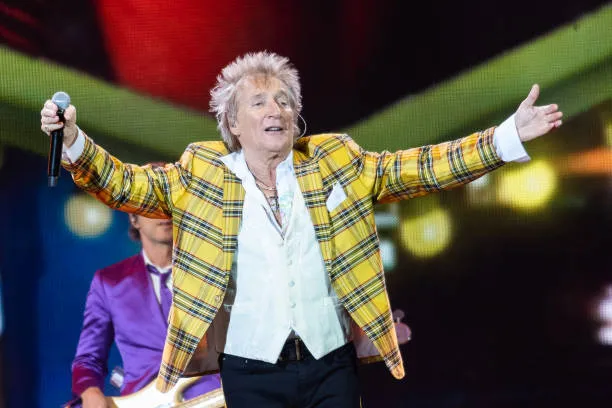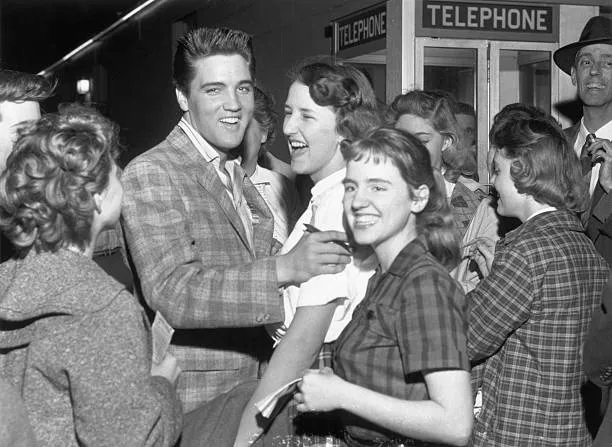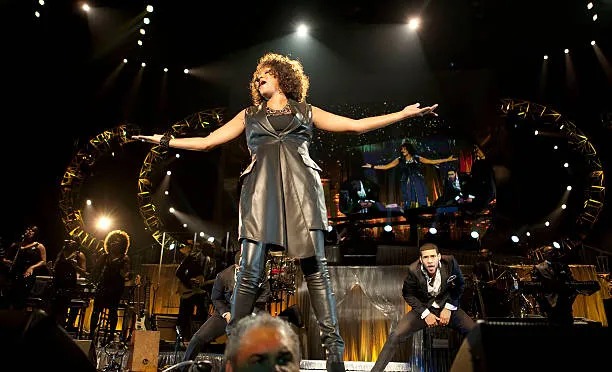Elvis Presley, often hailed as the King of Rock ‘n’ Roll, is a figure shrouded in musical legend and cultural influence.
Known for his electrifying stage presence, iconic voice, and captivating charisma, every facet of his identity has been examined and celebrated.
Yet, one aspect of his appearance often comes as a surprise to many: Elvis Presley’s natural hair color was not the iconic black we’ve come to associate with him, but a light shade of blonde.
This revelation leads to an intriguing inquiry: why did Elvis choose to dye his hair black as he grew up? Let's dive into this story to uncover the intriguing reasons behind Elvis Presley’s hair transformation.
The Early Years: A Blonde Boy from Tupelo
Born on January 8, 1935, in Tupelo, Mississippi, Elvis Aaron Presley entered the world with light blonde hair. Imagine a young Elvis, a shy little boy, chasing dreams down the dusty streets of his small hometown.
Growing up in a modest household, Elvis was often seen as different by his peers. This bashful boy, however, had something unique: a deep love for music, inflamed by the gospel tunes filling his family's home.

Elvis’s childhood images reveal a youngster with blond locks, a far cry from the dark-haired dynamo that would later steal hearts worldwide.
It’s this early image of a blond Elvis that sparks curiosity when juxtaposed with his later iconic look.
The Transformation: A Strategic Shift
Elvis’s decision to dye his hair was neither spontaneous nor superficial. As he ventured into the world of music, Elvis became increasingly aware of the significance of his image.
The transformation from sandy blond to jet-black hair was a carefully considered shift influenced by various factors.

A notable influence was actor Tony Curtis, who was renowned for his striking black hair and dashing looks. Elvis admired Curtis, and it isn’t hard to see why he might emulate such a magnetic figure.
Moreover, the black hair accentuated Elvis’s piercing blue eyes, creating a dramatic and mesmerizing effect. These aesthetic considerations were crucial in shaping Elvis's image, but they were just the beginning.
Crafting an Icon
In the high-stakes world of music and entertainment, standing out is paramount. As Elvis’s talent began to attract attention, it became clear that his image needed to be as distinctive as his voice.
Dyeing his hair black was a strategic move that gave Elvis a unique edge, crafting an unforgettable persona.
Elvis’s new look wasn’t merely about change for change’s sake; it was an essential part of branding.
In an era when the visual aspect was gaining importance, especially with the advent of television, Elvis’s black hair contributed significantly to his widespread appeal.
His stage presence, complemented by his sharp and striking hairstyle, made him an instant sensation.
Behind the Scenes: Personal Influences

Beyond the professional advantages, Elvis’s choice to dye his hair black was also deeply personal.
Family and friends often recall intimate moments when Elvis ensured that his hair was perfectly styled, showing his commitment to his new look.
Elvis’s mother, Gladys, played a crucial role in his life. Much of Elvis’s personal and professional decisions were influenced by her, and she reportedly approved of his transformation.
This maternal endorsement possibly gave Elvis the additional reassurance he needed to maintain his new hair color.
The Permanent Transformation
By the time Elvis emerged onto the national stage, his transformation was complete. From his late teens onwards, the world only knew Elvis Presley with his iconic black hair.
This adherence to his chosen style exemplifies how vital this element had become to his identity.
Elvis’s dedication to this aspect of his persona was evident even in his later years. He continued to maintain his black hair, reinforcing the image that fans had come to adore.
Even in his films and public appearances, the black hair was a non-negotiable part of his look.
Legacy of an Iconic Hue
The legacy of Elvis Presley’s black hair extends beyond his life. When fans visit Graceland, they envision the King with his perfectly styled, jet-black hair—an enduring symbol of his charm and allure.
His career might not have had the same impact had he retained his natural blonde color.
Biographers and historians alike agree that Elvis’s choice to dye his hair profoundly influenced his journey to stardom.
The decision wasn’t just about changing hair color; it was about creating an unforgettable image that would resonate through the decades.
The Crafting of a Legend

The transformation of Elvis Presley’s hair color from blonde to black is a fascinating story intertwined with personal desires, professional strategy, and the quest for a unique identity.
This seemingly simple decision played a pivotal role in shaping the King of Rock ‘n’ Roll’s indelible legacy.
Elvis’s journey from a shy blonde boy in Tupelo to an enigmatic black-haired icon underscores the importance of image in the entertainment industry.
It reveals how even the smallest details can influence one’s path to legendary status. Elvis Presley’s hair color wasn’t just a superficial change; it was an essential part of his identity and his rise to iconic status.
This story reminds us of the meticulous artistry behind crafting a persona that not only stands out but also stands the test of time.
Elvis Presley’s hair color remains an integral chapter in the legacy of the man who changed the face of music and culture forever.



